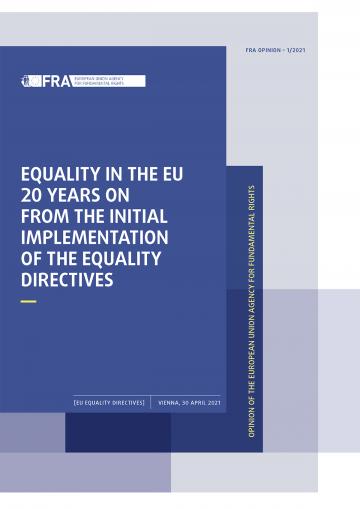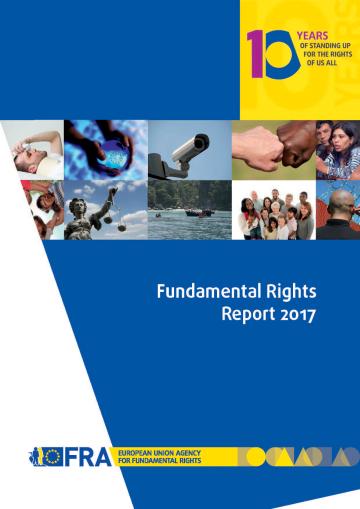The opinions presented here complement, reinforce and, sometimes, reiterate previous opinions FRA has formulated in its extensive body of work to date on equality, nondiscrimination and racism. The opinions pertain to the state of equality in the EU – on different grounds and in different areas of life – up to the end of 2020.
Objective, reliable and comparable data documenting experiences of inequality and discrimination are an essential tool for evidence-based policymaking. This opinion draws on data generated through FRA’s surveys and other evidence collected by the agency through its multidisciplinary research network, Franet, and in cooperation with the European Network of Equality Bodies (Equinet).
The main sources of data referred to in this opinion include five FRA surveys that cover a range of protected grounds in EU law and areas of life in which discrimination can occur. FRA collects survey data directly from those who are affected by discrimination, and these data offer a unique insight into the absence of equivalent data in many EU Member States. Specifically, this opinion draws on data and evidence from the following sources (see the annex for more information on FRA surveys):
- EU-MIDIS II: Second European Union Minorities and Discrimination Survey (2016)
- EU-MIDIS II: Being Black in the EU (2018)
- EU-MIDIS II: Muslims – Selected findings (2017)
- EU-MIDIS II: Roma – Selected findings (2016)
- Second survey on discrimination and hate crime against Jews in the EU (2018)
- EU LGBTI Survey II (2019)
- Roma and Travellers Survey (2019)
- Fundamental Rights Survey (2019)
- ad hoc data collection on experiences of discrimination in the area of employment and occupation on the grounds of disability and age
- ad hoc data collection on the status and functioning of equality bodies, in cooperation with Equinet.
The opinion presents FRA evidence of experiences of discrimination on the grounds and areas of life covered by the racial and employment equality directives. It also presents evidence of experiences of discrimination that go beyond the grounds and areas of life covered by these two directives. This information is relevant to the protracted negotiations on the 2008 proposal for an Equal Treatment Directive, namely the proposed Council Directive on implementing the principle of equal treatment between persons, irrespective of religion or belief, disability, age or sexual orientation.
In this report:
- Key findings and opinions
- Realising the principle of equal treatment in compliance with the Racial Equality Directive and the Employment Equality Directive
- Impact of uneven protection against discrimination in EU legal provisions in core areas of life
- Rights awareness and reporting of discrimination
- Developments in the role of equality bodies
- Promoting the collection and use of equality data
































